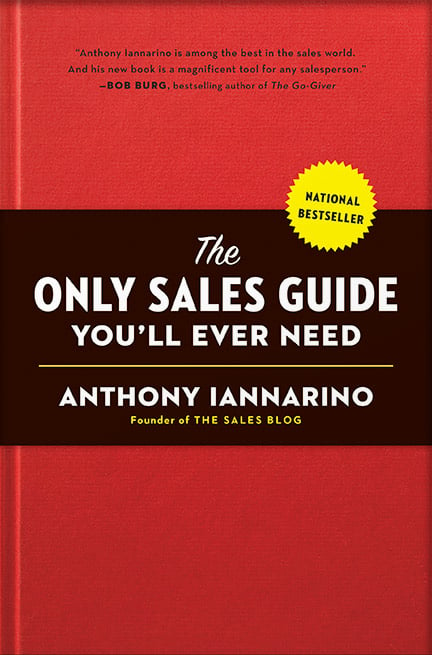The Gist:
- There is no value in eliminating choices when pursuing clients and results.
- Choosing the right action often comes down to the context of your decision.
- Some of the choices you avoid may allow you to improve your results.
Whenever there is an international crisis, most world leaders will resist projecting how they might respond. Instead, they’ll say, “All options are on the table.” Now, their political and geopolitical considerations are far more difficult than most of the decisions than we make in business, but their attitude is worth a second look.
During a workshop, for instance, an attendee shared with me that he was getting appointments by sending an unsolicited calendar invite to his prospects without so much as a conversation, let alone an agreement. That approach is horrifying in a world with endless distractions and a limitless ability to interrupt people who are busier than ever. When asked about his results, the attendee shared that twenty-five percent of his accepted calendar invites resulted in a meeting.
Results tend to be based on context, and this approach was dominated by the context: the salesperson had a hot new product with tremendous awareness. His prospective clients wanted to get a peek at something that promised to be far better than what they were currently using. As much as you and I might reject his approach on principle, it’s hard to argue with its success.


Prospecting Choices
There was a time when a large part of the sales establishment declared that the cold call was dead. The idea that social selling was going to replace the cold call turned out to be a non-starter. So did the idea that social media was a fad and that inbound wasn’t going to be useful to small and medium businesses. If software is eating the world, the dinner party was arranged by Marketing and the table is the internet. A few of us believed that every medium is valuable in the right context, especially when your contacts can be contacted via different mediums and prefer some over others.
One on my mentors, Ken Wilber, believes that no mind is capable of producing one hundred percent error (though I have seen some people get pretty close). His framework makes room for literally everything. Whenever there is something that humans find valuable, it likely fits somewhere. Yet, there are still some who would remove the phone, some who would ban text messaging, and many who still refuse to consider video chats. The only universally accepted prospecting choice is email, making it the most abused.
When you remove choices, you can make it more difficult to achieve the results you need. So if all options are on the table, you have to ask harder questions: what works in the context of your prospecting effort, and in what order do you use your choices to produce the best result when it comes to getting a meeting?


Context and Scenarios
In another workshop, an individual asked how they might go about getting a contact’s purchasing department to buy what his company sold. Purchasing being purchasing, he found it difficult to create a preference with them, even though his contacts had a very strong preference for his product. His eyes widened when I suggested having five stakeholders who want and need his product call Purchasing and tell them that they want his product specifically.
The context is important here: in this case his contacts are doctors, and they believe the solution is the best option for their patients. The doctor’s primary obligation is to treat their patient, not to save a few dollars. Value-based decisions like these are difficult because different stakeholders have different needs and different incentives. This conflict revolved around the imperative to run a profitable medical practice while providing the best possible care to the patients. Most people would side with the doctors on medical decisions.
Much of the time, when you find advice on sales and leadership, the context is missing or intentionally dropped. But what is right for one scenario may be exactly wrong given a different set of facts. You don’t have to love the approach that might work for you, but by removing a powerful choice (or a whole range of actions), you limit yourself to a single action instead of exploring a range of choices that might help you succeed—as well as helping your prospective client reach the better results they’re seeking.


What You Embrace and What You Avoid
We tend to embrace the things we know because our experience makes us more confident. We likewise avoid things that make us uncomfortable and clash with the approaches in which we are competent. But that approach can actually get in the way of professional development.
There are two ways to improve your effectiveness and your results. The first way is by improving the things you embrace. There is almost certainly room for growth and development in the areas you haven’t yet mastered at the highest level, even if you are already competent in them. Most people give up in the fundamentals soon after becoming competent. However, whatever you choose as your craft, you should strive for mastery.
The second way you can improve your results, though, is by adding new competencies. If mastery is difficult, it seems to be equally difficult for people to add a new trick, especially when it uncomfortably clashes with what they know. But rejecting even uncomfortable choices takes them off the table. If you work in a competitive displacement industry, one where you must remove your competitor to win a new client, know that your competitor may use the very approach you rejected, providing them a distinct advantage. You can lose by being too conservative when you should be bold.
Do Good Work:
- What are the things that you refuse to consider that others use to succeed?
- What stops you from considering new actions that might help you succeed?
- What do you do that other people avoid?

Essential Reading!
Get my first book: The Only Sale Guide You'll Ever Need
"The USA Today bestseller by the star sales speaker and author of The Sales Blog that reveals how all salespeople can attain huge sales success through strategies backed by extensive research and experience."
Buy Now







.jpg?width=768&height=994&name=salescall-planner-ebook-v3-1-cover%20(1).jpg)



Comments